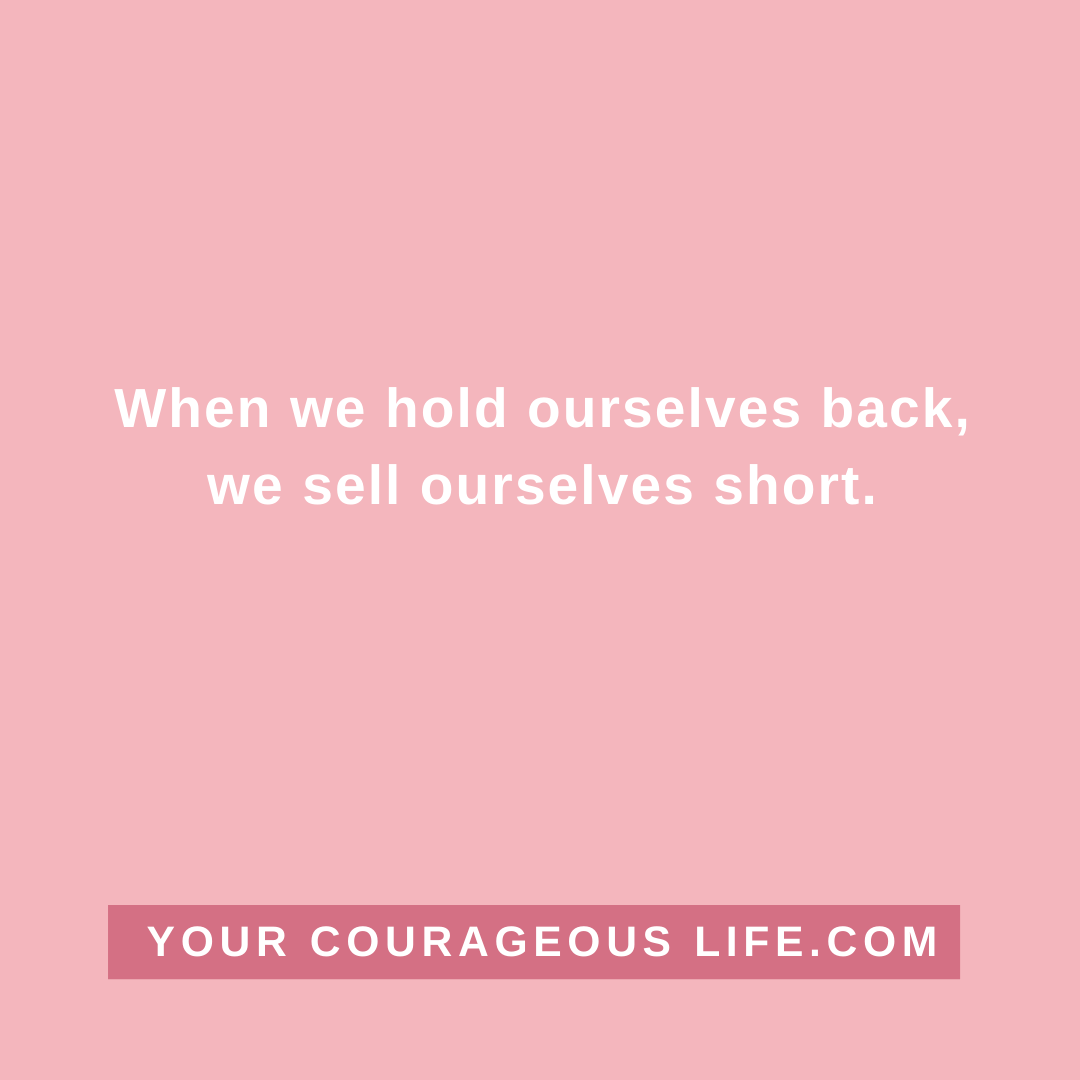How you do anything is how you do everything
People tend to fall into one of two categories when embarking upon some new change:
Category One: Gusto People : They dive right in, usually because they feel they know what they're getting into and how great it's going to be, and then as challenges arise or old Beliefs & Stories come up, the enthusiasm wanes. Quitting seems like the better option. It might even start to seem very real that the change in question is not "one I wanted, anyway." The timeline of a person's life can become littered with things started and abandoned.or, perhaps--
Category Two : Delayers : They hesitate. Wait. Want to collect all of the right answers. Want to make sure that they know what they're getting into. Want to have it all figured out. Just getting started and getting something in consistent motion seems like the hardest obstacle. There are false starts, sort of like turning the key but the engine just chugs rather than roaring to life. And it's very real: Some people can spend years in this space.
Either way, the fear kicks in at a certain point. For some it comes later; for others it's right from the start. And typically, the inner critic rushes in so fast to tell us how we f*cked it all up, that it's hard to get our bearings. The Gusto People steel themselves for giving something another try, sort of like focusing right before trying to jump a wall, while the Delayers spend more time trying to figure it all out before making a move.
Holding back : What's it Getting You?
I think there's a question that can be asked that helps to get more present to the cycle: "What do I think it's going to get me?"
If you something you want to shift, really try to identify what exactly it is that you believe that the shift is going to get you.
For instance, we don't lose weight because we just think losing weight is a fantastic bit of fun. We lose weight because we think it's going to get us something--love, for instance. More sex. Pride in an accomplishment. Feeling good about ourselves.
We don't buy stuff because it's just oh so fun to have stuff lying around. We buy it because we believe that the product or experience is going to make us feel better about ourselves or our lives.
This is not earth shattering news, but it's amazing how often we can make choices that are totally grounded in an assumption that we will get some specific thing if we do XYZ. One of the earliest practices in the Courageous Living Program is to clearly identify one's values, so that every decision you're making about your life is orienting from that place, rather than what other people think or what you're told you "should" do.
The same question can be asked during the times when we're clinging so hard to the fear: What are you getting out of hesitating or holding back?
To play the victim? To not 'have to' change a belief or habit? To blame someone else? To stay in your comfort zone longer? To not disrupt old family roles? To avoid paying money for something? To avoid fully stepping into your power? To avoid the vulnerable discomfort of pain--or the same vulnerable discomfort of utter joy?
I'm all about people (consciously) sitting with their fear. It's good stuff. And--I'm also all about curiosity. What's that about? It wouldn't serve us to stay in fear, forever.
How We do Anything...
The interesting thing about working with fear is that we often find that how we do anything is how we do everything.
Holding back in one area of your life is holding back in another. And the topic you choose to examine as a starting point really doesn't matter, either. When someone first starts coaching with me, the things they want to change really can be anything: Be more connected to myself. Start a creative practice. Lose ten pounds. Earn more money.
The places where we get stuck around money are often the same or very similar to how we get stuck with creative practices or weight loss or...whatever.
This is not bad news. It's incredibly helpful information to know! If you're feeling stuck in any area of your life, take this tool with you. The tool is that you look at your habits in one area of your life, and then you notice how those same habits are operating in another area. And if you identify a place where you managed to surmount those habits, then ask yourself: What was the critical factor, here? What did I do, differently?
Talk about simplification--a glimmer of wisdom or truth in one area becomes your medicine, your transformation, in another.
You may also like:
What's life trying to teach you?
How to change your life
Overcoming fear of change

